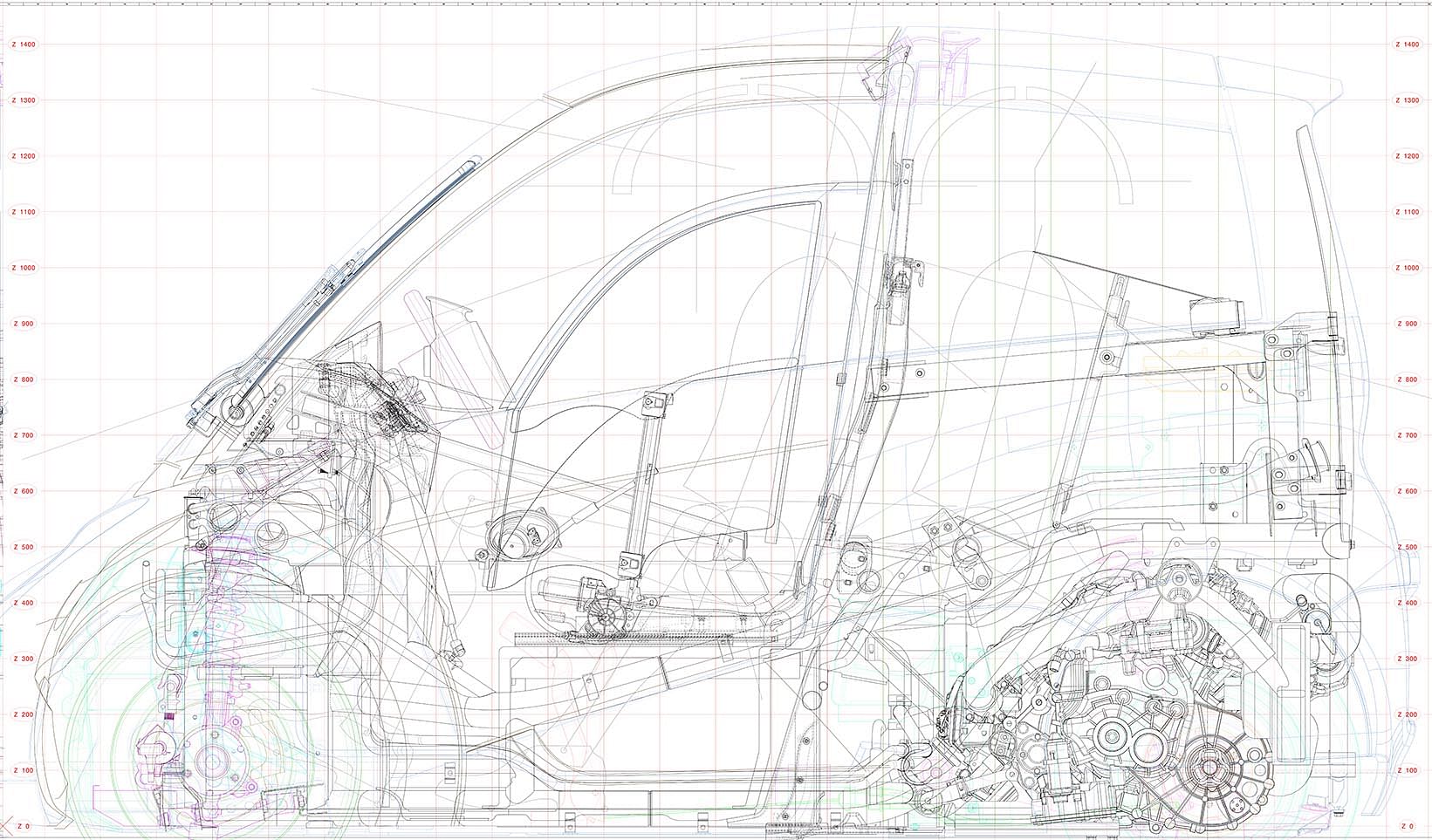Shell and Gordon Murray Design to develop ultra compact city car concept
Lubricants major Shell, in collaboration with legendary race and road car designer Professor Gordon Murray and engine specialist Osamu Goto,
Lubricants major Shell, in collaboration with legendary race and road car designer Professor Gordon Murray and engine specialist Osamu Goto, is to co-engineer an ultra-compact, efficient car for city use based around the internal combustion engine. The car will be "a ground-up, total re-think of the Gordon Murray Design T.25 car developed in 2010" and is scheduled to be unveiled in November 2015.
The concept is intended to be a simple, practical global city car, drawing together the most innovative aspects of lightweight engineering, streamlining, and driveline efficiency. It aims to inspire thinking about maximising personal mobility while minimising energy use, helping people get around the world’s ever-more congested cities where, by 2050, up to three-quarters of the world’s estimated nine billion people could be living.
Potential technological developments include (1) improvements to internal combustion engines; (2) reductions in vehicle weight; (3) other non-powertrain vehicle efficiency improvements; (4) electric mobility, especially when coupled with decarbonisation of electricity generation; (5) improved fuels and lubricants, giving higher efficiency; and (6) reduced carbon intensity fuels, such as second-generation biofuels. To these can be added a range of possible measures aimed at behavioural change, for example: modal shift, incentivizing downsizing in consumer vehicle choices, reductions in maximum speeds, more efficient driving styles, and road pricing.
The concept car is not intended for production, but to inspire thinking about how the efficiency and utility of a car with a relatively ‘simple’ conventional petrol engine can be maximised for city use worldwide and also to prove the benefits of ground-up engineering collaborations.
A recently issued plan of the mechanical layout appears to prove that Project M will retain the T25’s ultra-compact, three-seat, rear-engined layout. The car seems certain to utilise Murray’s unique iStream design/manufacturing process, which employs a simply fabricated tubular steel frame with strategically bonded-in composite panels to deliver low weight and immense strength without the inflexibility of the stamped steel components that are the basis of most cars.

Initiated by Shell, the collaboration, which is called Project M (technical illustration shown above), brings together Shell’s Lubricant’s technology team, the Gordon Murray Design Group and engine specialist Geo Technology. This technically intimate co-engineering relationship between the three expert teams means that the development of the lubricants, engine and vehicle will be completely integrated delivering results neither group could achieve by working apart.
“Since working with the Gordon Murray Design team on the T.25 car in 2010, we have given further thought on how to deliver a complete rethink of the car, using as little energy as possible. We believe this Shell car will demonstrate how efficient a car can be when Shell works in harmony with vehicle and engine makers during design and build, supplying fuels and lubricants technical expertise. Shell is excited to be working with such top calibre partners and invite others to join us for the remaining part of this exciting journey,” said Selda Gunsel, vice-president (Lubricants Technology), Shell.
Shell stresses the efficiency-building potential of modern, low-viscosity lubricants when integrated into the wider design of an economy car and its engine. The original T25, which was powered by a Smart-derived petrol triple that used experimental low-friction Shell oils, returned 97mpg/34kpl to win a London-Brighton economy competition, and showed the potential of new lubricants to cut urban cycle fuel consumption by up to 6.5 percent.
RELATED ARTICLES
Autoliv Plans JV for Advanced Safety Electronics With China’s HSAE
The new joint venture, which is to be located strategically near Shanghai and close to several existing Autoliv sites in...
JLR to Restart Production Over a Month After September Hacking
Manufacturing operations at the Tata Group-owned British luxury car and SUV manufacturer were shut down following a cybe...
BYD UK Sales Jump 880% in September to 11,271 units
Sales record sets the UK apart as the largest international market for BYD outside of China for the first time. The Seal...






 By Autocar Professional Bureau
By Autocar Professional Bureau
 09 Apr 2015
09 Apr 2015
 4831 Views
4831 Views





 Ajit Dalvi
Ajit Dalvi




